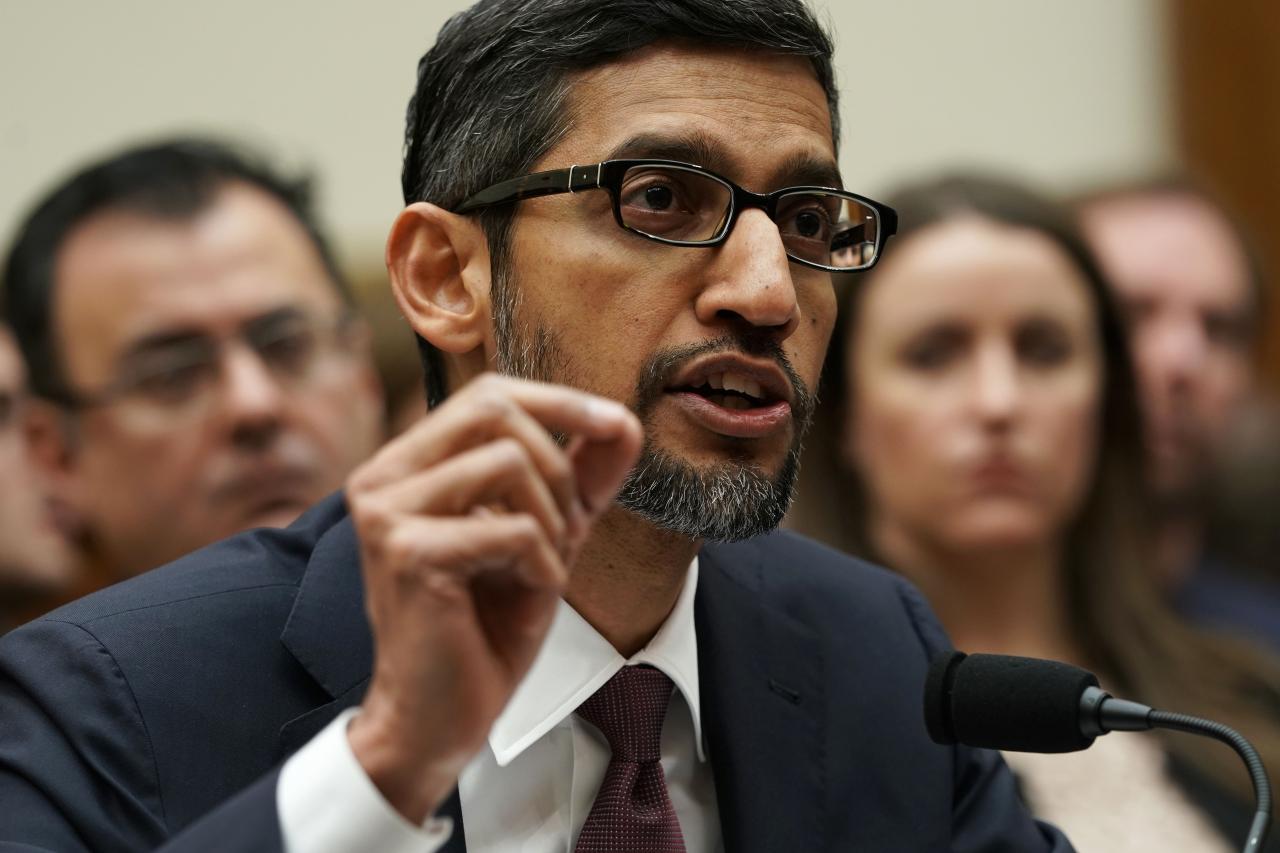As artificial intelligence rapidly transforms the digital landscape, global regulators are racing to keep up. In the United Kingdom, a significant development is underway the UK Competition and Markets Authority (CMA) has officially launched a formal investigation into Google’s AI-driven search features, marking a pivotal moment in how governments scrutinize the integration of AI in consumer-facing technology.
The focal point of this probe is Google’s Search Generative Experience (SGE), an experimental feature that enhances traditional search results with AI-generated summaries, insights, and content previews. While the technology promises greater convenience and faster answers, it has sparked concerns among competitors, content creators, and regulators, who fear it could further entrench Google’s dominance.
This article delves deep into the ongoing UK investigation, Google’s SGE technology, the concerns it raises, the broader implications for AI-driven search, and what the future might hold for both users and the digital marketplace.
Understanding Google’s AI Search: What Is SGE?
In early 2023, Google began rolling out Search Generative Experience (SGE) an AI-powered layer within its search engine. Unlike the traditional format that offers a list of web links, SGE uses generative AI models to synthesize information from various sources and present users with a narrative, conversational style response at the top of the search page.
A. Key Features of SGE
SGE is designed to:
A. Summarize key points from multiple sources
B. Offer follow up prompts for deeper exploration
C. Provide product comparisons with review snippets
D. Display visual rich content and contextual highlights
E. Reduce the need to click external links
B. The Technology Behind It
SGE is powered by Google’s large language models (LLMs), including models derived from its Gemini AI family. These models are trained on vast datasets and fine tuned for informational retrieval, question answering, and content summarization.
C. The Rollout Strategy
SGE initially launched in beta via Search Labs, and has gradually expanded access globally, with full deployment planned in select regions depending on regulatory approval and feedback from early adopters.
Why Is the UK CMA Investigating Google?
The UK’s Competition and Markets Authority began examining the potential competitive and consumer impacts of AI foundation models in 2023. In May 2024, it escalated its scrutiny to include how major firms are incorporating AI into core services, especially search and browsers.
By June 2025, the CMA formally stated its intention to investigate Google’s implementation of SGE, citing a number of critical concerns.
A. Anti Competitive Behavior
Google already dominates over 90% of the UK search engine market. With SGE, critics argue that Google could:
A. Diminish visibility for third-party publishers
B. Favor its own platforms (YouTube, Google Shopping, etc.) in AI summaries
C. Reinforce user dependency on Google’s ecosystem
D. Shut out smaller competitors through proprietary AI advantages
B. Impact on Publishers and Content Creators
By summarizing web content without requiring clicks, SGE could severely impact:
A. News outlets that rely on ad revenue from page visits
B. Bloggers and niche content creators
C. E-commerce businesses hoping to appear in organic search
D. Sites offering specialized professional advice (legal, medical, etc.)
C. Data Collection and Transparency
The CMA is also concerned about:
A. How Google selects content for AI generated summaries
B. Whether proper attribution and licensing are given
C. How user data is collected, stored, and used in SGE-driven personalization
D. Lack of clarity on how users can opt out or disable AI features
Google’s Response to Regulatory Concerns

In response to the UK CMA’s announcement, Google issued a statement reaffirming its commitment to working collaboratively with regulators while also defending the benefits and transparency of SGE.
A. Commitment to Innovation
Google emphasizes that SGE is part of its mission to:
A. Make information more accessible and digestible
B. Help users navigate complex topics efficiently
C. Enhance discovery without replacing original content
B. Collaboration with Publishers
Google claims to be:
A. Developing tools to ensure proper content attribution
B. Engaging with publishers to share insights and traffic metrics
C. Testing “click-through” incentives to encourage traffic to source websites
D. Exploring partnerships on AI powered news and media projects
C. Regulatory Compliance
Google has committed to complying with:
A. UK GDPR and data protection laws
B. Competition law directives
C. Transparency requirements around generative AI systems
D. Any additional frameworks introduced by the CMA
Implications for Digital Markets
The CMA’s investigation into SGE could set a global precedent for how AI powered search is regulated. It has raised important questions about fairness, transparency, and the future of information access online.
A. Market Concentration
If unchecked, AI search could lead to:
A. Reduced competition in the search engine market
B. Less diversity in accessible viewpoints
C. Increased pressure on ad-based revenue models
D. Fewer incentives for original content creation
B. Shift in Web Traffic Patterns
Early SGE test results showed that many users do not scroll beyond the AI-generated box, leading to:
A. Decreased traffic to SEO optimized websites
B. Lower click-through rates on organic search results
C. Greater dependence on being featured in the SGE summary
D. Difficulty in tracking and analyzing search behavior
C. Content Ownership and Licensing
Legal experts and media groups are raising alarms about:
A. Unlicensed use of protected content for AI training
B. Ambiguous copyright attribution in AI summaries
C. Conflicts between fair use principles and commercial AI deployment
D. Lack of revenue-sharing mechanisms for content creators
Global Context: Regulation Beyond the UK
The CMA is not alone in its scrutiny. Around the world, regulatory bodies are evaluating how companies like Google, Microsoft, and OpenAI are integrating AI into their services.
A. European Union
The EU is implementing the AI Act, which classifies AI systems by risk level. It could place strict obligations on foundation model providers and platforms using them in public-facing products like SGE.
B. United States
The Federal Trade Commission (FTC) and Department of Justice (DOJ) are jointly reviewing whether generative AI tools violate:
A. Antitrust laws
B. Fair competition practices
C. Consumer data protection standards
C. Australia and Canada
Both countries are reviewing copyright laws and AI-generated content, with discussions around royalty models and mandatory licensing.
Opportunities and Risks for Businesses

The introduction of AI-powered search presents a dual edged sword for business owners and marketers.
A. Opportunities
A. Brands that adapt quickly may gain visibility in SGE summaries
B. Niche experts may receive elevated positioning as “authoritative voices”
C. Improved search experiences could boost overall engagement
D. AI tools might help companies generate content more efficiently
B. Risks
A. SEO strategies may need complete overhauls
B. Paid advertising models may suffer reduced ROI
C. Content theft and uncredited use could rise
D. Small publishers may find themselves entirely excluded
The Future of AI in Search: What Comes Next?
The CMA’s inquiry is still in its early phases, but outcomes could include:
A. Regulatory Actions
A. Fines or restrictions on how SGE presents data
B. Requirements to license content for AI summaries
C. Limitations on Google favoring its own platforms
D. Mandates for greater algorithmic transparency
B. Industry Shifts
A. Growth in AI-friendly SEO optimization services
B. Emergence of independent AI-powered search engines
C. More AI partnerships between tech companies and publishers
D. Increased demand for AI explainability and auditing tools
C. User Expectations
Consumers are beginning to:
A. Expect quicker, more conversational search results
B. Worry about AI hallucinations and misinformation
C. Demand better transparency and content traceability
D. Question the ethical implications of AI-driven knowledge
The UK’s investigation into Google’s AI search is more than just a local regulatory matter it reflects a broader global effort to balance innovation with accountability. Generative AI holds the potential to revolutionize how we discover and consume information. Yet, without clear rules and fair practices, it may also undermine content creators, concentrate power, and erode digital fairness.
As Google navigates the scrutiny, and as the CMA continues its inquiry, the outcomes will likely define how search, publishing, advertising, and AI coexist in the years to come. For consumers, businesses, and regulators alike, this moment represents a pivotal opportunity to shape a digital future that is both intelligent and equitable.












